Atwood machine

Atwood used the system to prove Netwons laws of motion. Atowood machine consists of two loads of mases m1andm2 attached to the ends of a limp of inextensible string as shown in tghe figure 11. The string runs over a pully. FInd the acceleration of each load and tension in the string (m1>m2)
we know that tension of string always tries to pull te bodies up.
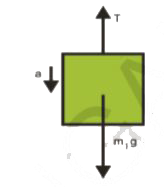
From the FBD of the mass m1, there exist two forces on the load of mass m1, one is tension of the string acting in upward direction and weight of the load (m1g) acting in downward direction.
The net force on m1Fnet=m1a
⇒m1g−T=m1a−−−−−−−−−−−−−−−(1)
Thus the net force (Fnet) acting on mass m1 produces an acceleration .a. in it.
When m1 moves down, m2 moves up. So the magnitudes of acceleration are same.
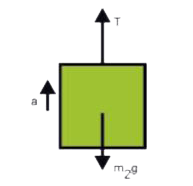
From the FBD of mass m2
Fnet=T−m2g=m2a−−−−−−−−−−−−−−−−(2)
Solving (1) and (2) equations, we get
a=(m1−m2gm1+m2
T=2m1m2gm1+m2
Topper's Solved these Questions
- BOOK - NCERT TAMILCHAPTER - LAW OF MOTION EXERCISE - THINK AND DISCUSS12videos
LAW OF MOTION
- BOOK - NCERT TAMILCHAPTER - LAW OF MOTION EXERCISE - LET US IMPROVE OUR LEARNING (REFLECTIONS ON CONCEPTS )3videos
LAW OF MOTION
- BOOK - NCERT TAMILCHAPTER - IS MATTER PURE?EXERCISE - THINK AND DISCUSS9videos
IS MATTER PURE?
- BOOK - NCERT TAMILCHAPTER - LIGHT EXERCISE - Problem5videos
LIGHT
Similar Questions
Two blocks of masses m1 and m2 are attached at the ends of an inextensible string which passes over a smooth massless pulley. If m1>m2, find :
(i) the acceleration of each block
(ii) the tension in the string.
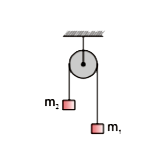 View Solution
View SolutionTwo masses M and m are connected at the two ends of an inextensible string. The string passes over a smooth frictionless pulley. Calculate the acceleration of the masses and the tension in the string. Given M>m.
View Solution
Knowledge Check
- Question 1 - Select One
The tension in the string shown in figure m−2m→F is.
AF/3BF/6CF/2D2F
Two blocks are attached by a light inextensible string and the system is pulled by applying a force F0 as shown in the diagram. Find the acceleration of each block and tension in the string.
 View Solution
View SolutionFind the acceleration of masses m1 and m2 connected by an inextensible string, shown in figure-2.13(a). The string and pulley are assumed to be massless and frictionless.
View SolutionConsider the double Atwood's machine as shown in the figure
(a) Whatis acceleration of the masses?
(b) What is the tension in each string?
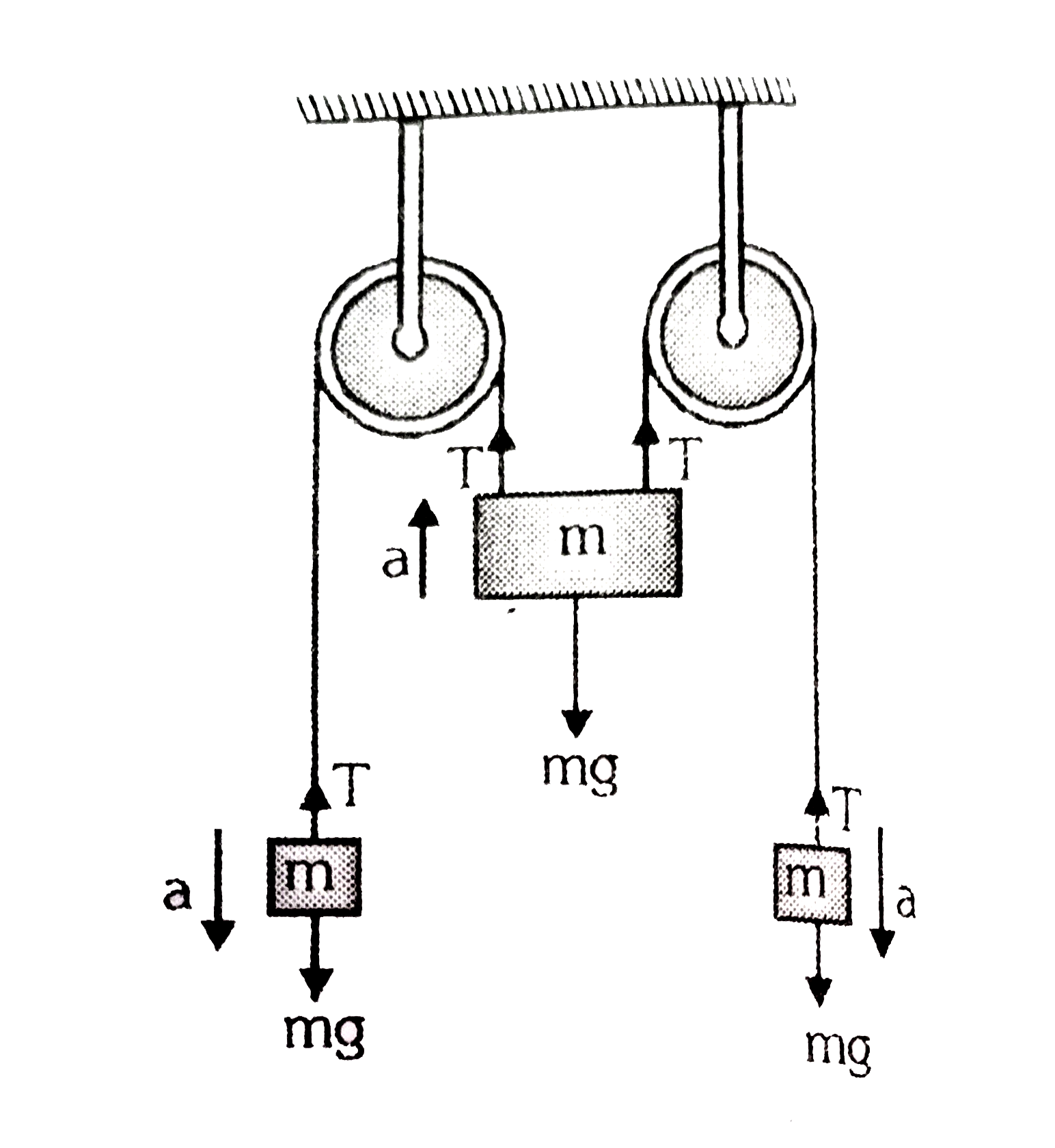 View Solution
View SolutionConsider the double Atwood's machine as shown in the figure
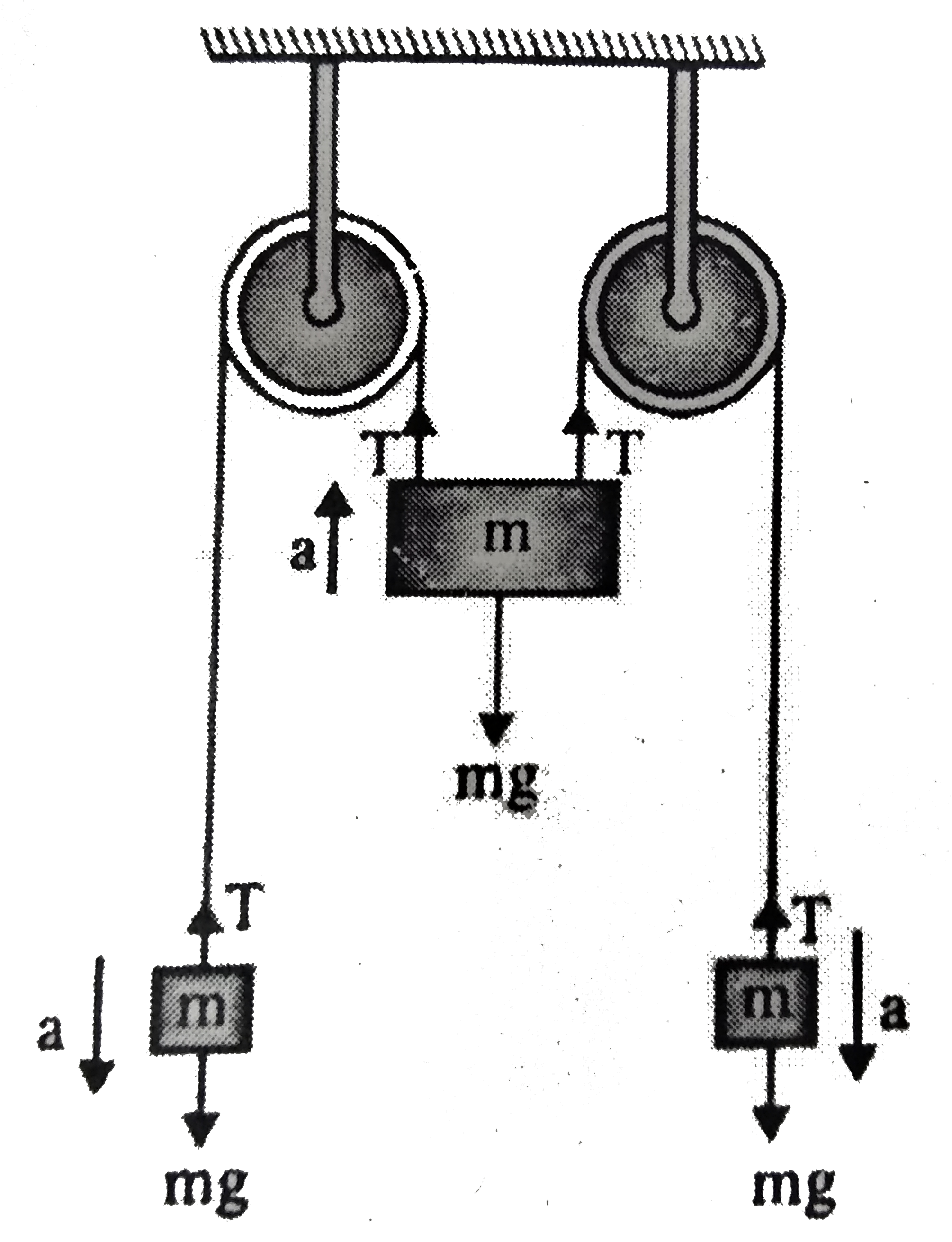
(a) What is acceleration of the masses?
(b) What is the tension in each string?View SolutionConsider the double Atwood's machine as shown in the figure
(a) Whatis acceleration of the masses?
(b) What is the tension in each string?
 View Solution
View SolutionConsider the double Atwood's machine as shown in the figure

(a) What is acceleration of the masses?
(b) What is the tension in each string?View SolutionA block of mass m is attached at the end of an inextensible string which is wound over a rough pulley of mass M and radius R figure a. Assume the string does not slide over the pulley. Find the acceleration of the block when released.
View Solution
